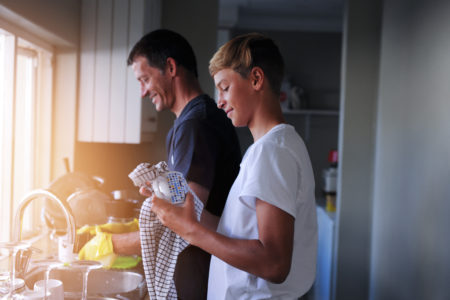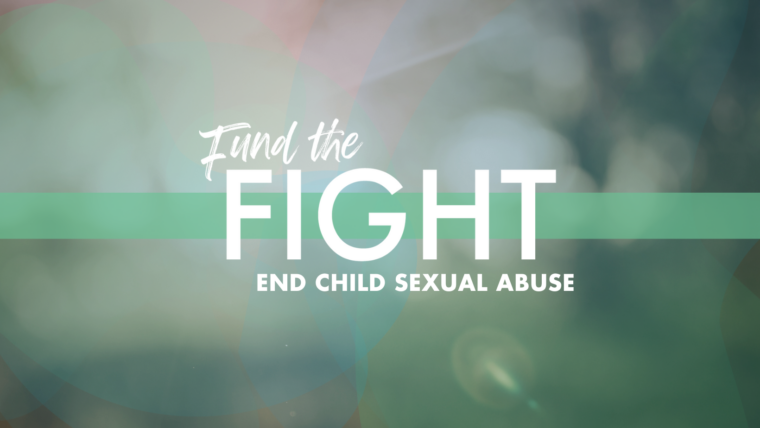While you can’t prevent your teen’s first heartbreak, you can equip them with the tools and knowledge needed to safely navigate dating.
Teaching teen dating safety goes beyond the “birds and the bees.” It also involves teaching teens respect, communication skills, and spotting red flags before problems escalate. While discussing sex and relationships might be intimidating, or even uncomfortable, it’s necessary for both parents and teenagers. A conversation today could keep them safe tomorrow, especially if dating safety becomes an ongoing dialogue with your teen. The important thing? Just start!
The Issue:

Youth who experience dating violence can develop a lifelong pattern of unhealthy relationships. According to a retrospective 2019 survey conducted by the CDC, 26% of women and 15% of men experienced dating violence before they turned 18.1 Teen dating violence (TDV) can look like physical violence, sexual abuse, psychological aggression, or stalking. Youths who fall victim to TDV are more likely to experience anxiety, depression, suicidal thoughts, and engage in self-destructive behaviors. It’s important to keep an eye out for these things; many of the warning signs may be easily overlooked as adolescent growing pains.2
“Not all abuse is physical,” said Katelyn Brewer, president and CEO of Darkness to Light. “Abuse often begins with psychological aggression – grooming, violating a person’s boundaries, being emotionally abusive, or otherwise controlling. If we educate our kids to spot the warning signs, there’s a better chance of preventing violence down the road.”
The Solution:
Talk about it! Even if it feels awkward or difficult (because teenagers), open and honest conversations with the safe adult in their life can help them navigate romantic relationships in a positive way.
So where do you start teaching teen dating safety? The first thing is to make sure your teen knows what acceptable and unacceptable behavior is. You also want to make sure they can make informed decisions and recognize potentially dangerous situations.
Topics to discuss:
- Your Family Values Around Sex and Relationships: Reiterate your family’s beliefs about the way you love and respect others. If you have a Family Code of Conduct, pull that out! Teach your teens about healthy sexual relationships, but also emotionally heathy relationships. Be sure to approach this conversation lovingly, curiously, and open to discussion, even as you hold your own boundaries around your Family Code of Conduct.
- Consent: Asking for and receiving consent is key! Consent is affirmative permission to do something. It’s not permanent permission- teach your teens that they can revoke consent at any time, and that consent needs to be present for every activity. Consent isn’t implied through an attitude or a type of clothing, and it can’t be given under the influence. A person only consents when they give a clear, positive response. Check out our Consent related resources here.
- Respecting Boundaries: If consent isn’t given (for anything), teach your teen to be ok with it. It’s never ok to force someone to do something. It’s also never ok to make someone feel bad for having boundaries. Maintaining boundaries and feeling comfortable enough to speak up about your needs actually makes the relationship safer, because you build trust with one another. It’s a sign of respect.
- Clear Communication and Honesty: Empower your teen to make their needs and boundaries known. When a person communicates clearly, there’s no question as to consent, and each partner will be able to truly understand the other’s perspectives. Make sure they also know they can come to you about anything that’s going on. Knowing they have a safety net in you, that you will believe and protect them, can be a great preventative measure.
- Empathy: Empathy is when you identify with another person’s thoughts, feelings, or attitudes. By empathizing with their partner, your teen will learn to look beyond themselves and recognize the other’s needs. How do you teach a teen to cultivate empathy? Model it for them yourself.
It’s critical that your teen is able to spot relationship red flags. Not all abuse is physical and dating violence often starts with subtle controlling behavior. Since some of the concepts above may seem abstract to your teen, it’s important to include age-appropriate and relatable examples. Teach your teens the common warning signs of an abusive partner.
Red Flag Behavior:
- Coercing their partner into activities they don’t really want to do

- Checking their partner’s phone or social accounts without permission (crossing personal boundaries)
- Putting their partner down, especially in front of others
- Physically, financially, or emotionally isolating their partner from family and friends
- Extreme jealously or insecurity
- Explosive outburst, temper, or mood swings.3
Teaching teen dating safety is imperative. While teens may not want to talk about their romantic feelings and relationships, they’re depending on the safe adults in their lives to help them navigate the new, and often confusing, dating scene. We can do that through having honest conversations, modeling healthy boundaries, and honoring consent ourselves.
References:
1 “Preventing Teen Dating Violence.” Centers for Disease Control and Prevention, 2020, https://www.cdc.gov/violenceprevention/intimatepartnerviolence/teendatingviolence/fastfact.html.
2 “Safe Dating Tips for Teens.” RAINN, 2018, https://www.rainn.org/news/safe-dating-tips-teens.
3 “Warning Signs of Abuse.” Love Is Respect, https://www.loveisrespect.org/about-dating/warning-signs-of-abuse/.
Follow us on social media to stay up to date and join the conversation.


